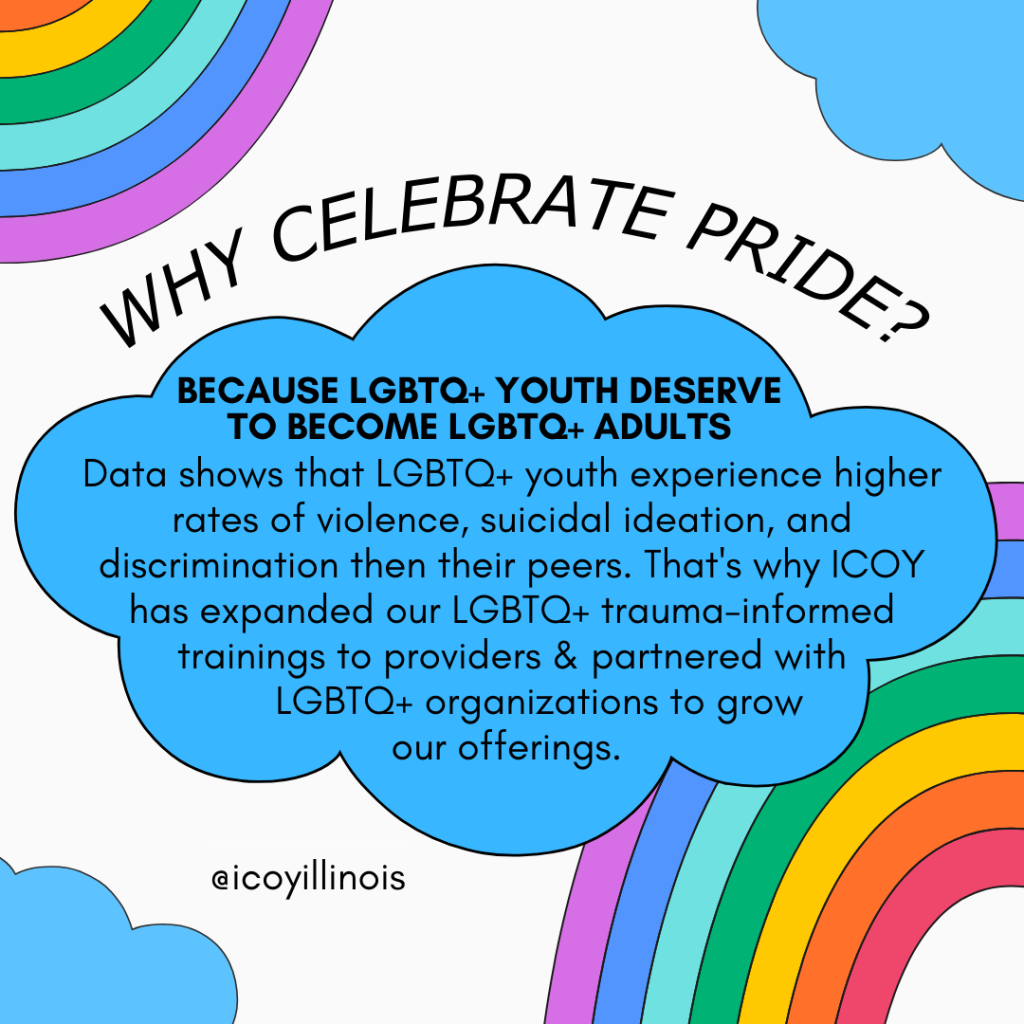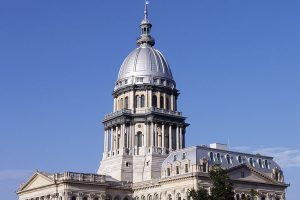June Reflections: Pride Month & Juneteenth Celebrations
Publisher: Brie Blue

Notes from Sarah Daniels, ICOY’s Chief of Staff:
Historically, Juneteenth has been an under-recognized and under-celebrated holiday, but in recent years, it has grown more awareness and has led to becoming widely recognized and celebrated both statewide and nationally. The details on how this proclamation came to be tends to be misconstrued as it relates to the order of events and accurate dates on when black slaves became “free”.
As a black woman in America and someone who looks forward to celebrating Juneteenth with other black Americans, it is with great pride that I use this writing as an opportunity to further educate and adequately define how we have come to be bold in our celebrations and advocacy around achieving such a milestone. Using an NPR article, The Juneteenth Foundation/Campaign for reference support, I’ll be highlighting some examples of myths that have been used to describe how black people became “free” from being enslaved and factual research that has been found to counter and dispel those myths in a way that displays accuracy on how we actually got here.
Myth #1: President Abraham Lincoln issued his Emancipation Proclamation on Jan. 1, 1863, and it took two and a half years for the news to finally reach enslaved people in Texas.
Fact: During the Civil War, the first issued Emancipation Proclamation was released on September 22, 1862. However, it was not until June 19,1865 that many (not all) slaves knew about Lincoln’s executive order emancipating them. Blacks overheard the news by whites and some slaves were privy prior to some slaveowners, but it didn’t mean anything because there was no army to enforce it.
June Collins Pulliam is a fifth-generation Galvestonian whose enslaved great-great-grandparents, Horace and Emily Scull, were freed by the Juneteenth Order. “It wasn’t that all these poor people didn’t get the message,” she says, “It was that there was no one enforcing it, no one making it happen!”
Myth #2: Major Gen. Gordon Granger penned General Orders No. 3, the Juneteenth Order, and is credited with freeing Texas slaves.
Fact: The order—which includes the powerful language “all slaves are free” and “absolute equality”—was written by Granger’s staff officer, Maj. Frederick Emery, who hailed from an abolitionist family in Free Kansas. “As a crusader against slavery in Kansas, Emery was well versed on the subject of emancipation,” writes Cotham in his Juneteenth book.
Sam Collins III, the unofficial ambassador of Juneteenth tourism in Galveston, says, “Granger is just one of the characters in the story. He’s not any great hero. Matter of fact, he was no friend of the enslaved people. There are reports of Granger sending runaway slaves back to slave states.”
Myth #3: Gen. Gordon Granger read the Juneteenth Order from a balcony to the people of Galveston, announcing that “all slaves are free.”
Fact: According to Cotham, Gen. Granger never read the order publicly, nor did any member of his staff. It would have been posted around town, particularly at places where Black people gathered, such as “the Negro Church on Broadway,” as Reedy Chapel-AME Church was then called. Most enslaved people in Texas learned of General Orders No. 3 when the slave master called them together and read them the news.
Myth #4: The Juneteenth Order was basically a Texas version of the Emancipation Proclamation.
Fact: General Orders No. 3 stated unequivocally “all slaves are free,” but it also contained patronizing language intended to appease planters who didn’t want to lose their workforce. Forty-one words of the brief 93-word order urged enslaved people to stay put and keep working.
“The freed are advised to remain at their present homes, and work for wages. They are informed that they will not be allowed to collect at military posts; and that they will not be supported in idleness either there or elsewhere.”
When we reflect on the work necessary to address systemic disproportionality and inequities, the real facts and events leading up to Juneteenth further validates why that stagnancy still exists and why it is important to shift the narrative around them. One of the ways that blacks are attempting to shift the narrative is by reclaiming the power of what ‘freedom’ entails, including focusing on ways to improve their lives and wellbeing through economic relief and the paths of their choice– instead of abiding by the societal constructs that stems from the enslaved mentality forced upon them. Although the first anniversary dates to 1865, the first real Juneteenth Celebration took place in 2020 amidst the civil unrest and protests for the ‘Black Lives Matter’ movement and after the onset of the COVID-19 pandemic. The power that black people find in their day-to-day efforts stems from the lived experience of having to dispel myths and overcome the odds are due to the barriers that we face, and why we cling to celebrating the strides that communities across the nation are making to combat the continued setbacks.
Whether you are an ally, a part of a marginalized group or fellow black person, I encourage you to continue to support racial and social impact organizations, be a part of the dialogue that promotes diversity, equity and inclusion, and take part in local Juneteenth events/campaigns. Thank you for joining me in acknowledging the importance of Juneteenth and its relevance to our everyday support and advocacy for children, youth and families in Illinois.

Illinois Collaboration On Youth has long been a voice for the voiceless in our community, specifically for youth, children, and their families.
We believe in partnering together to support LGBTQ+ youth and children in Illinois because data shows that affirming queer youth decreases suicide rates and increases positive outcomes. For many, this is an especially scary time to exist as a transgender, non-binary, and/or queer person and they need not just your support but also your action!
Here are a few ways you can show up for LGBTQ+ children and youth in your life:
- Use their preferred pronouns!
- Transgender & nonbinary youth who report having their pronouns respected by all or most of the people in their lives attempted suicide at half the rate of those who did not have their pronouns respected (from The Trevor Project)
- Don’t make assumptions about their identity!
- Avoid making assumptions about a young person’s sexual orientation or gender identity. Make it a practice to ask & respect their decision. Bonus: continue asking! Sexual orientation & gender identity can change! (from The Trevor Project)
- Be a role model for inclusion!
- 1 in 3 LGBTQ+ youth reported that they had been physically threatened or harmed in their lifetime due to their LGBTQ+ identity. Speak up against violence & showcase inclusion in the spaces you occupy. (from Human Rights Campaign)
- Create a safe space for them to be themselves!
- Almost half of the LGBTQ+ youth say they’ve muted their self-expression because of the recent politics. Look for ways that you can demonstrate to the young people in your life that they can be themselves around you. (from Human Rights Campaign)
- Take action within your community!
- Change starts with our local communities. Spend some time thinking about how you can influence the spaces you already exist & operate in to be more inclusive, accepting, & supportive of LGBTQ+ youth.
- Remember that Pride is all year long!
Pride contributions by Brie Blue, Director of Marketing & Communications at ICOY and a proud Queer human!






